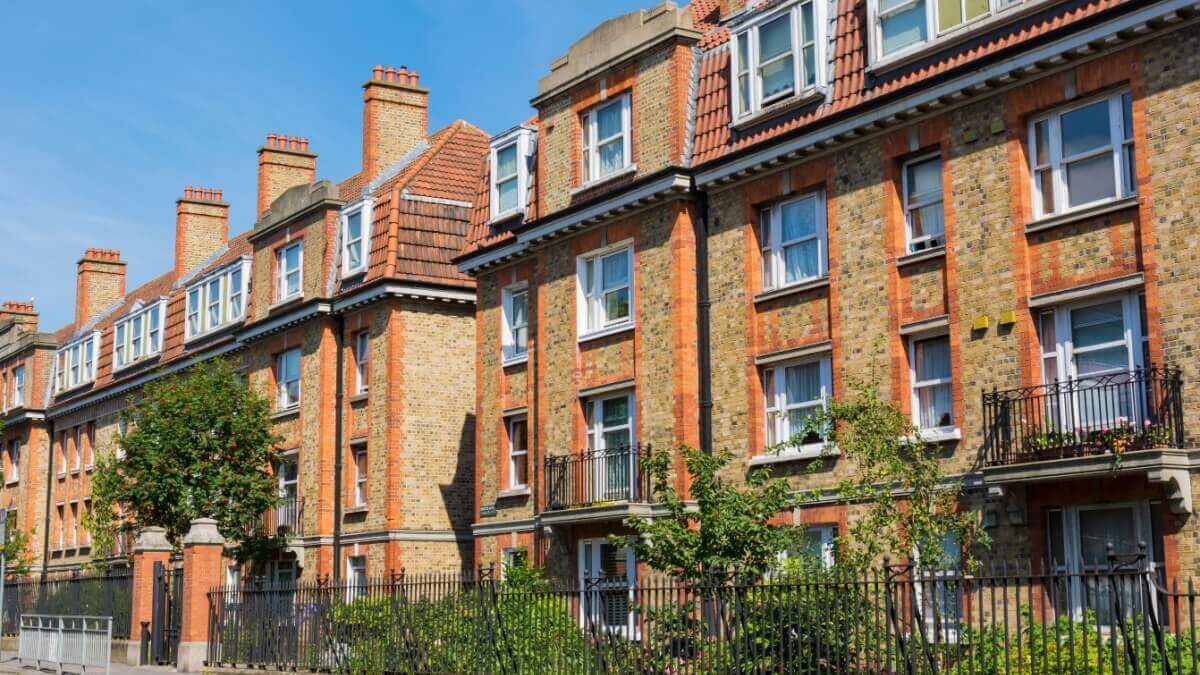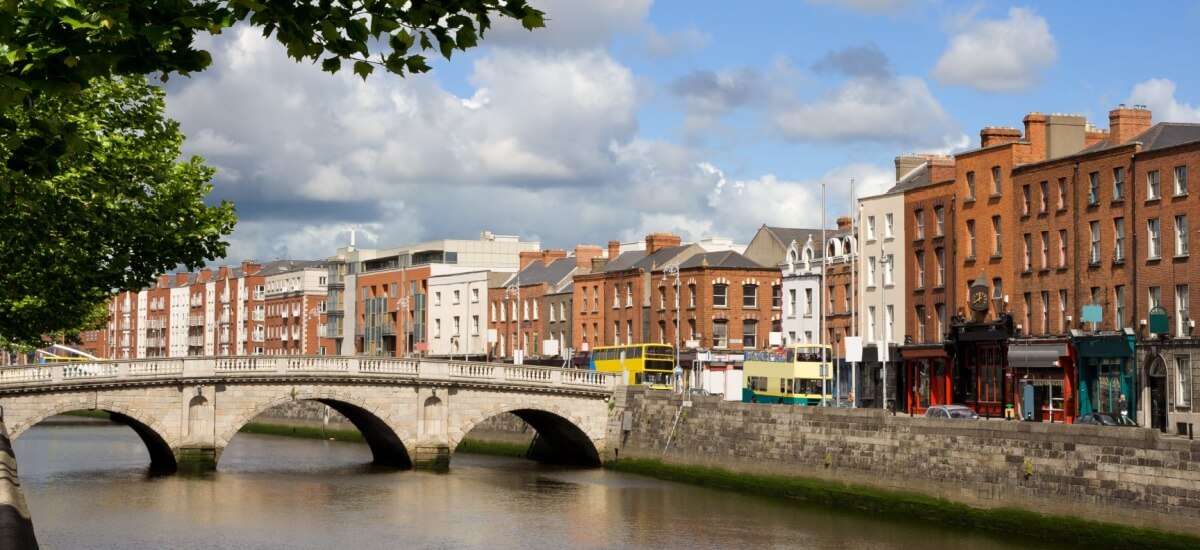Moving to Ireland from the USA: Everything you need to know
Moving to Ireland from the US? This guide covers all the essential information for relocating to Finland as an American, including tips and insights.

Whether you're moving for work, study, or to experience a new culture, finding a place to rent in Ireland is exciting, but you probably have a few burning questions at the tip of your tongue.
So, how does renting in Ireland work? In this guide, you'll learn everything you need to know about the application process, rent prices, additional costs, necessary documents, types of properties, and much more.
We’ll also introduce Wise, an international account for sending, spending, and converting money like a local. Use it to pay your rent in Ireland and save on fees.
Yes, an American can rent property in Ireland. That said, it's important to have all of your documents in order because the rental market is competitive, especially in major cities like Dublin.
You'll typically need to show your landlord proof of your legal ability to live in Ireland for the duration of your lease. It's also helpful to have an Irish bank account for paying rent and utilities.
In 2024, Ireland's rental market is struggling to meet rising demand. There are not enough homes available compared to the number of people trying to find somewhere to live.
As a result, the cost of rentals in Ireland continues to rise. Nearly 30% of new rental agreements across Ireland now cost over 2,000 EUR (~2,174 USD) per month. In Dublin, this figure rises to over 50%.¹
That said, it's still possible to find affordable apartments and houses for rent in Ireland, especially if you move further away from cities like Dublin and Cork.
| City | Monthly Rent for 1-Bedroom |
|---|---|
| Dublin² | 1,900-2,500 USD |
| Cork³ | 1,400-1,700 USD |
| Galway⁴ | 1,450-1,700 USD |
| Limerick⁵ | 1,400-1,800 USD |
| Waterford⁶ | 1,300-1,650 USD |
| Wondering how much that would cost in EUR? Check out this handy conversion calculator |
|---|
In addition to monthly rent, there are a few other expenses you'll need to cover.
Utilities are typically not included in rent in Ireland. You will also have to pay a security deposit. Some landlords require higher security deposits, but they can’t exceed more than one month’s rent.⁷
| Category | Cost |
|---|---|
| Deposit | One month’s rent⁷ |
| Trash collection | 20 USD⁸ |
| Utility costs | 150-250 USD⁹ |
| Internet | 50-60 USD⁹ |
To rent an apartment or house in Ireland, you'll typically need the following documents:
- Passport or another form of ID
- Valid Irish visa or residency card
- Proof of income (pay stubs, employment contract, or bank statements)
- References from previous landlords
If you're a student, a parent or guardian may be able to show proof of income on your behalf.
Your landlord may also need a Personal Public Service (PPS) number to register your tenancy with the Residential Tenancies Board (RTB). Getting a PPS as a foreigner can be tricky. If you don't have a PPS number, get in touch with the Department of Social Protection (DSP) or hire a lawyer to complete the procedure for you.

Wise offers you a quick, secure and transparent way of sending money to Ireland. You get the mid-market exchange rate for your payments and see how much it’s charged for the transfer before sending the money from your bank.
With the Wise Account you can also hold 40+ currencies, spend money in 150+ countries, and receive like a local in 9 different currencies.
Please see Terms of Use for your region or visit Wise Fees & Pricing for the most up to date pricing and fee information
Apartments, semi-detached houses, and detached houses are the most popular types of property to rent in Ireland, but there are many options available.
In Ireland, you'll find anything from small studios to multi-bedroom units. Most apartments in Ireland come furnished, which means that you'll be able to move in right away.
Semi-detached houses are homes sharing one wall with a neighbor. This option offers more privacy and space, but is typically cheaper than a standalone house.
Suburban and rural areas often have semi-detached or standalone houses available for rent, and you can find more affordable options as you move further away from big cities.
Staying in a short-term rental during your first few months in Ireland allows you to explore different areas before committing to a more permanent solution.
Areas near universities sometimes have lower-cost accommodations specifically for students.
With rental costs rising, many people are also starting to consider renting with roommates. Shared apartments or houses are a great way to save money on rent and utilities, but they come with less privacy.
Renting or sharing apartments is more popular in bigger cities like Dublin, Cork, and Limerick.
| Considering buying instead of renting? Read our full guide on buying property in Ireland as an American. |
|---|
Finding a property to rent in Ireland is pretty straightforward. However, the market is competitive, so you should be prepared to act quickly once you find an apartment or home you like.
Many Americans use real estate agents to find a property to rent in Ireland because it simplifies the search process.
Real estate agents have an extensive knowledge of the local market and can help you find properties that meet your requirements. They can also help you handle the paperwork and negotiate on your behalf.
Keep in mind that you'll be responsible for covering your real estate agent's fee, not your landlord.
You can find rentals in Ireland using online property portals such as Daft.ie, Rent.ie, and MyHome.ie. Filter by location, price, and property type to see photos of different apartments and houses. Spend a couple of hours researching to narrow down available options.
Once you find a few listings you like, get in touch with the landlord or real estate agent to arrange a viewing.
Facebook groups and other social media sites often have rental listings. Social media is especially effective for finding roommates and shared accommodations. You may also be able to find some sublets and other lower-budget options.
With the high demand and rising rental prices, there's a risk of rental scams in Ireland. Follow these tips to protect yourself:
- Make sure you see the property first and sign an official rental contract before paying your deposit or rent
- Visit the property to make sure that it matches the description and photos, and that the person renting it out is legitimate
- Use reputable websites and agencies and stick to registered real estate agents
- When using social media, only respond to legitimate-looking postings and make sure to schedule a viewing before committing to anything
Avoid deals that seem too good to be true. Notice when a landlord or real estate agents are putting pressure on you to pay and stay vigilant.
The Irish real estate market is competitive, so it can be tempting to commit to the first rental you see. This can lead to disappointment in the long run.
Do your research and make a list of important factors to find a place that suits your needs and lifestyle.
Here are a few things to consider:
| Item | Details |
|---|---|
| Location | Look for a place close to your work or school to minimize the commute |
| Amenities | Check if the area has grocery stores, restaurants, hospitals, parks, and other amenities you'd often use |
| Public transportation | Check if the property is close to buses, trams, or trains to get around Ireland |
| Property condition | Look for signs of mold, maintenance issues, or wear and tear and ask about any recent renovations or repairs, especially in older properties |
| Safety | Ask your landlord about the safety of the neighborhood and look at crime rates |
| Lease terms | Pay attention to the clauses about rent increases, maintenance responsibilities, and termination notice periods |
| Parking | Check if there's on-site or street parking if you have a car |
| Utilities | Utilities are typically not included in your rent in Ireland, but you can ask for an estimate of the monthly costs |
| Pets | If you have a pet or are thinking of getting one in the future, make sure that the property is pet-friendly and ask about any pet-related fees |
| Noise | Think about how much traffic, construction, and nightlife noise you're willing to live with |
| Subletting | Ask your landlord if you're allowed to rent out the house or apartment for extra income |
When you find a rental you like, be prepared to act quickly and make an offer to the landlord. There are typically multiple people looking at the same listing. Wise makes it easy to get your payments to your landlord fast with minimal fees.*
Applying for a property to rent in Ireland is not complicated, but it's important to have all of your documents in order and move quickly to secure your rental. The process varies slightly depending on if you work with a property agency or rent directly from a landlord.
Your real estate agent will find properties that fit your requirements and schedule viewings. Once you decide which option is your favorite, they'll help you prepare the paperwork and make your offer.
Your real estate agent will also help you understand important clauses of your rental contract. In case you want to alter the contract, your agent can help with the negotiations. Once the contract is signed, you'll need to pay your deposit and rent for the first month.
Applying with a private landlord is similar but you have to communicate with them directly.
Once you make your offer, the landlord can accept or decline it. If they accept, you'll need to submit the necessary documents, sign the contract, and make your first payment. Always make sure that you receive a formal lease agreement.
Tenancy contracts, also known as lease agreements, are legally binding documents that outline the terms of your rental arrangement. They protect both you and your landlord in case of a disagreement.
A standard contract typically includes:
- Names and IDs of the tenant and the landlord
- Property address
- The rent amount and when it must be paid
- Contract duration
- Responsibilities of the tenant and the landlord
- Maintenance and repairs clauses
- Termination notice periods
In Ireland, short-term leases are typically less than one year. Long-term leases can be for one year or more. The most common lease duration is one year. In case of a dispute, you can get support from the Residential Tenancies Board (RTB).
Tenants in Ireland have rights and protections under the law. You have the right to:
- ask tenants or neighbors to stop making noise for the quiet and exclusive enjoyment of your home
- contact your landlord or their agent at any reasonable time
- be reimbursed for any repairs that you carry out that are the landlord's responsibility
- have visitors to stay overnight or for short periods, unless your contract explicitly forbids this
- receive at least 90 days’ notice if your landlord wants to increase the rent
Your landlord can't enter the property without your permission. If your landlord wants you to leave the property, they need to give you the correct amount of notice and, in some cases, a valid reason why they're terminating your lease.¹⁰

Ireland is a small country with many great cities to live in. Popular options include:
- Dublin
- Cork
- Galway
- Limerick
- Waterford
If you want to rent in the capital, Dublin, be prepared for higher prices compared to the rest of the country. Ireland's second-largest city, Cork, has a slightly lower cost of living than Dublin.
On the other hand, Waterford is the oldest city in Ireland and comes with more affordable prices.
| Read further |
|---|
Sources:
Sources checked 07.30.2024
*Please see terms of use and product availability for your region or visit Wise fees and pricing for the most up to date pricing and fee information.
This publication is provided for general information purposes and does not constitute legal, tax or other professional advice from Wise Payments Limited or its subsidiaries and its affiliates, and it is not intended as a substitute for obtaining advice from a financial advisor or any other professional.
We make no representations, warranties or guarantees, whether expressed or implied, that the content in the publication is accurate, complete or up to date.

Moving to Ireland from the US? This guide covers all the essential information for relocating to Finland as an American, including tips and insights.

Interested in buying land in Ireland? Here’s everything you need to know about buying a plot of land abroad as an American.

Thinking about buying property in Europe? Your best bet might be Ireland. Learn everything about buying property in Ireland right here.

Ireland is known for its love of food and drink, picturesque countryside and bustling cities. Read on to find out the pros and cons of living in Ireland.

Child maintenance in Ireland is complicated — read on to learn what you need to know.

Having a baby is a priceless experience, but if you’re a foreigner in a different country, it can be daunting to navigate new healthcare systems and impending...